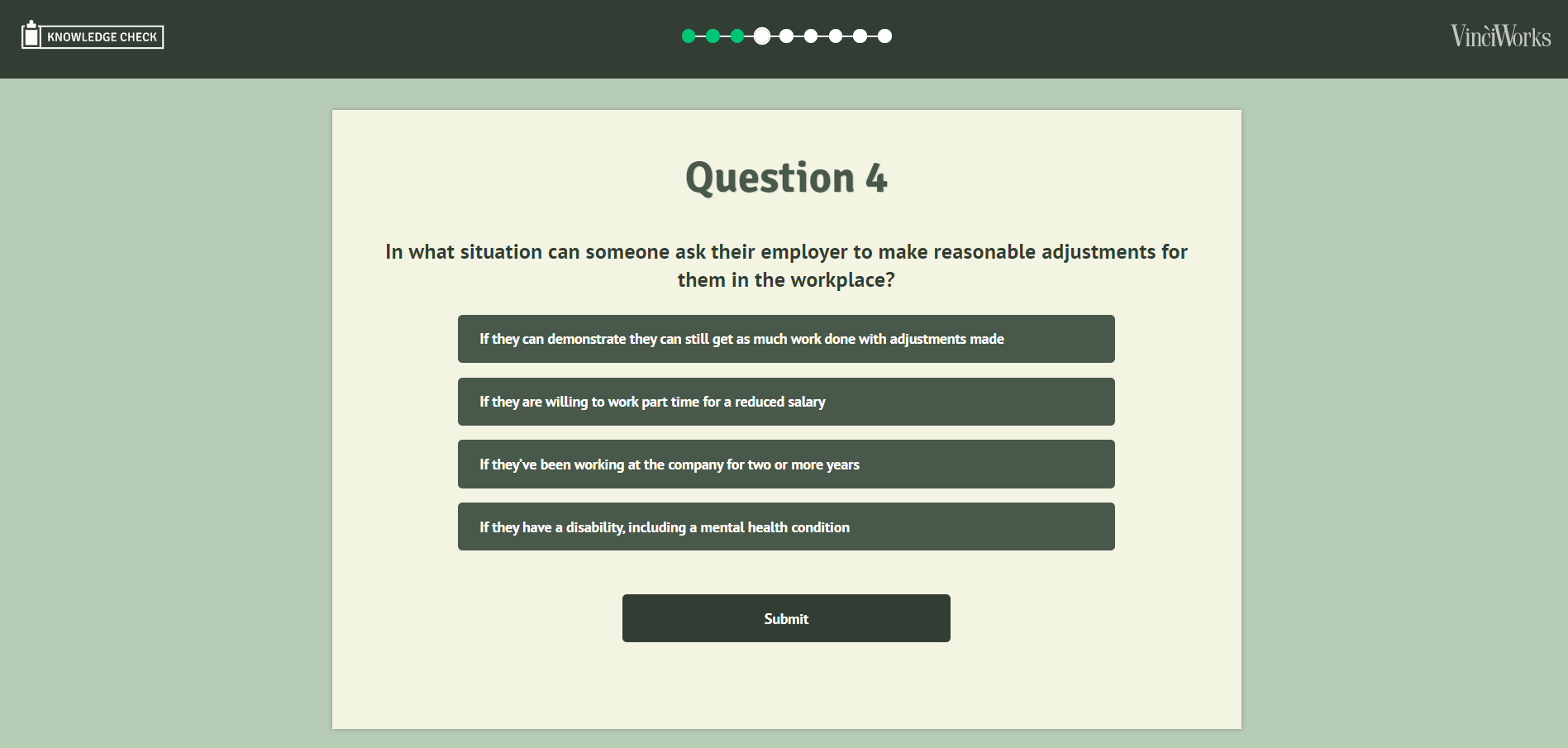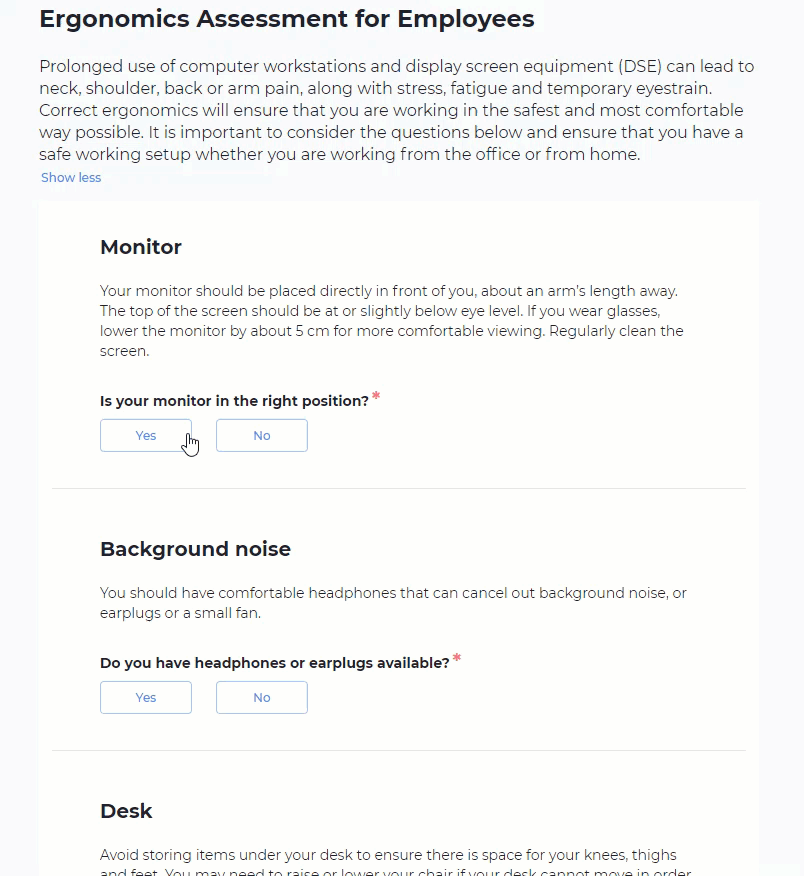The estimated cost of mental ill-health to UK employers each year is between £33 billion and £42 billion, totalling around 91 million lost working days. Two-thirds of UK CEOs considered the mental health of their employees as a priority, but only 16% had a defined strategy in place to help them. VinciWorks has released a short knowledge check to compliment its award-nominated course, Mental Health: Wellbeing at Work, to help organisations test their staff’s knowledge of mental health issues and their applications at work, including giving users an understanding of some of the causes of stress at work, what can happen when problems are not dealt with, and how employers can help.
The knowledge check includes a review of terms and concepts as well as scenario questions to help employees understand which course of action to take in different situations. We recommend the knowledge check be used alongside the full-length Mental Health: Wellbeing at Work course. Widespread staff training can help shift the culture to one that’s open to talking and helping, thus helping shatter taboos that are too often prevalent when it comes to mental health.
The knowledge check covers several aspects of mental health and its workplace applications to help ensure employees are trained to spot the signs of poor mental health in themselves and others, what support systems are in place, and what their legal rights are.
Some of the topics covered:
- Signs of symptoms of various mental health problems and how to spot and deal with them
- Understanding key terms and concepts
- Scenario questions to test your ability to correctly handle certain situations
- Tips for managers
VinciWorks’ Knowledge Check series
VinciWorks’ knowledge checks allow businesses to verify and assess your staff’s knowledge of key compliance areas. We are always adding new knowledge checks and we even have an option for businesses to create their own.














